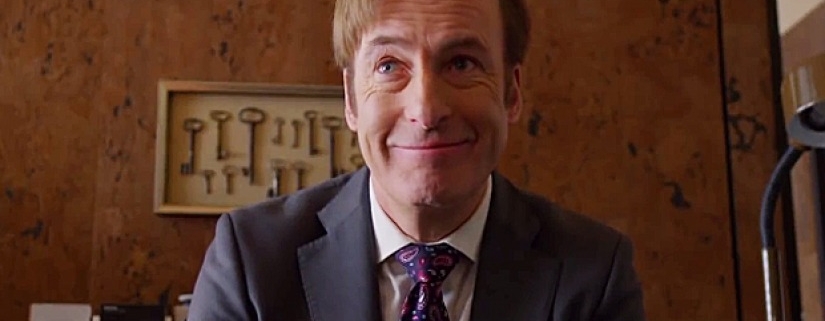Yesterday was the season four premiere of AMC’s Better Call Saul, the highly acclaimed “dramedy” which features slippery lawyer Jimmy McGill.
If you have yet to watch this great series, don’t worry no spoilers are needed; the lessons we can learn from the series still make sense even if you know a few basics.
Better Call Saul is a prequel series to Breaking Bad, and if you’ve seen that, you know the character Jimmy (played masterfully by Bob Odenkirk) eventually transforms himself into the very ethically challenged Saul Goodman. In either show, Jimmy/Saul is not someone you want to emulate.
The characters both finds and creates conflict in his life from his warring moral compass against his ambition. What do Jimmy’s complicated character flaws have to do with your estate planning? In the show Jimmy focuses in on elder law, including counseling senior citizens on how to make and reach their estate planning goals. While that’s great, he also makes ample, costly mistakes along the way with his important cases and clients. If there is anywhere in life to avoid preventable, silly mistakes it’s in estate planning. Here are five of the worst mistakes you should avoid like a Jimmy McGill scam with your estate plan.
Thinking you only need a will
As I’ve stated before, but bears repeating, you need more than a will. You need an estate plan. An estate plan consists of several legal documents to prepare for your death or incapacitation and a will is just one of these several documents, although an important one. I’ve written at length about the six “must have” estate planning documents. Don’t get just a will, it’s not enough. Get an estate plan.
Settling for a DIY estate plan
Why would you not hire an Iowa lawyer—particularly one well versed in wills, trusts and estates—and go it alone? Yet, folks write their own “estate plans” all the time. There are at least nine excellent reasons, among many others, to hire an attorney to draft your estate plan.
The question is not, whether you can you write your own “estate plan.” Given the Internet and YouTube, with some training and practice you could no doubt perform oral surgery on yourself. The question is whether that decision is a wise one and will it turn out well? The plain truth is you need a lawyer to help you with your estate plan.
Failing to keep your estate plan updated
The only constant in life is change, and as your life changes your estate plan must adapt. Common events that should cause you to re visit your estate plan include:
- The birth or adoption of a child or grandchild
- Marriage or divorce
- Illness or disability of your spouse
- Purchasing a home or other large asset
- Moving to another state
- Large increases or decreases in the value of assets, such as investments
- If you or your spouse receives a large inheritance or gift
- If any family member, or other heir dies, becomes ill, or becomes disabled
There are many other life events that ought to cause you to update your estate plan. Be sure to keep your estate plan current.
Not getting an estate plan at all
Surveys show that about 50% of Americans don’t have even a basic will. Oy. When you consider the bad, even terrible consequences of not having an estate plan, if you don’t have one, get on it stat. A great start would be to download my Estate Plan Questionnaire. My EPQ is free and easy, and truly a terrific first step.
Failure to think about including your favorite charity in your will.
Your estate plan is a great way to fund the causes you care about most. Whether it be a church, hospital, school, social welfare agency, whatever nonprofit you feel strongly toward, why not make a gift to them in your estate plan? You may well make a real difference, perhaps even one large enough to transform your fave charity and affect generations to come.
If you have kids, of course you want to make sure they are well provided for. I certainly understand that. But perhaps your kids are now grown adults, successful in their own careers. Perhaps you are affluent, in which case, maybe you need to ask yourself, “How much is enough for the kids?“ Consider generously giving to that charity (or charities) at your final farewell through charitable bequests as a part of a lasting legacy and impact.
Unlike the Jimmy McGill or Saul Goodman style of attorney, I am honest, ethical, and working with a mission in mind . Be the judge for yourself—I offer a free one-hour consultation and transparent estate planning package rates. Questions or simply want to talk about how great this show is? I can always be reached via email at gordon@gordonfischerlawfirm.com, or by phone at 515-371-6077.



